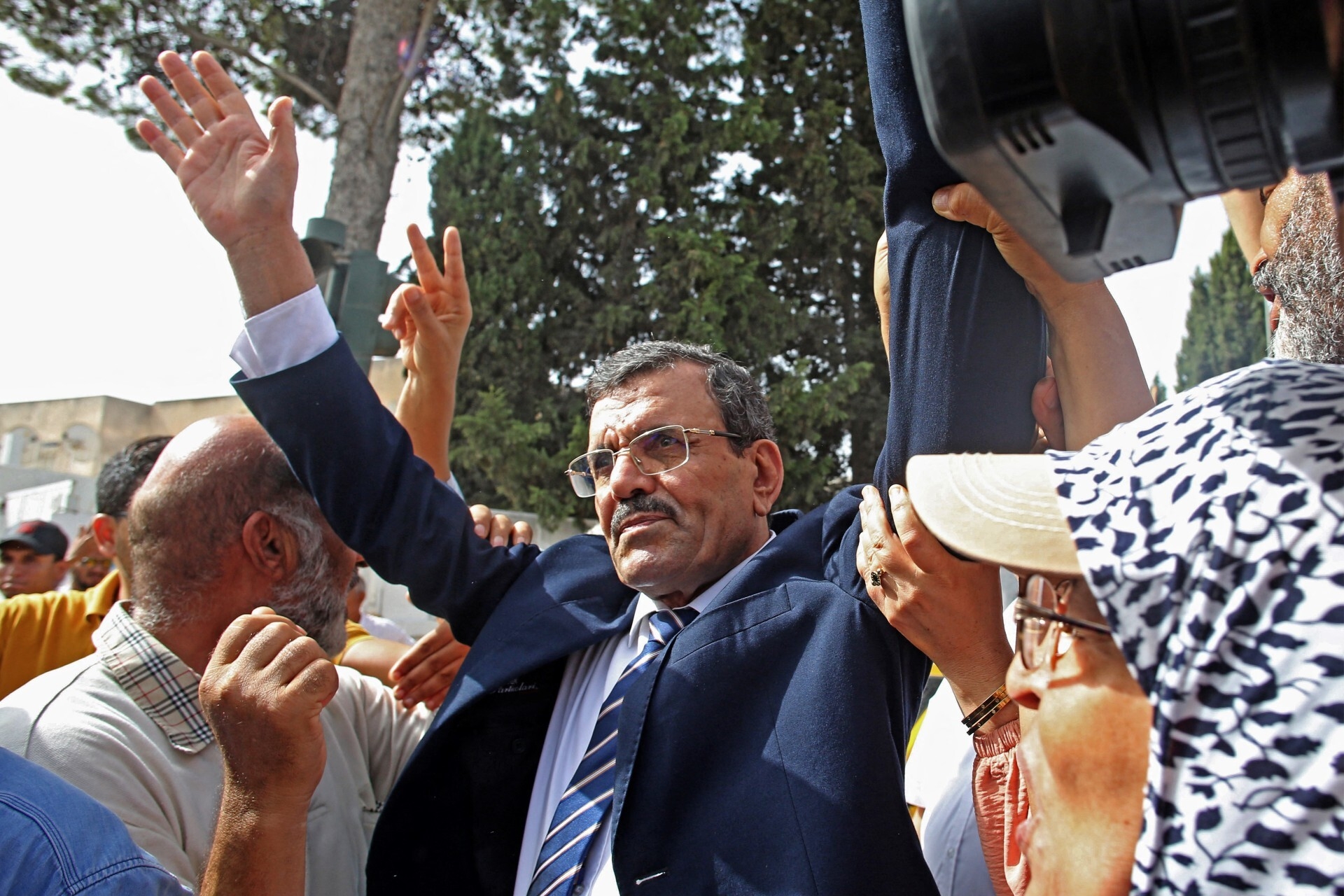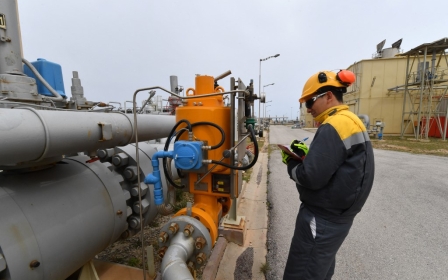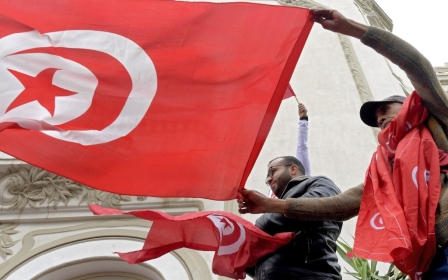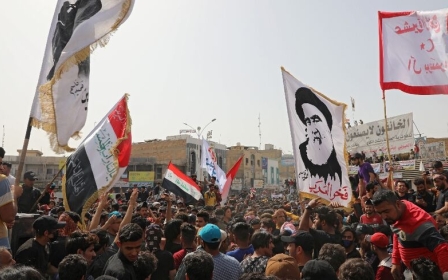Tunisia opposition leaders summoned over 'politicised' terrorism allegations

Police have targeted two Tunisian opposition leaders in the latest crackdown on critics of President Kais Saied.
Rached Ghannouchi, former speaker of Tunisia's dissolved parliament and president of the Ennahda movement, has been summoned to a police station facing accusations of supporting "terrorism".
The country's anti-terrorism police also arrested Ali Laarayedh, who was prime minister from 2013 to 2014.
Laarayedh, who is also a senior official in the Ennahda party, was arrested on suspicion of "sending jihadists to Syria", according to his lawyers.
New MEE newsletter: Jerusalem Dispatch
Sign up to get the latest insights and analysis on Israel-Palestine, alongside Turkey Unpacked and other MEE newsletters
Tunisian authorities have not yet explained why they summoned Ghannouchi, who has been under investigation since June on allegations of money laundering linked to foreign funds. Ghannouchi denies the allegations.
'By initiating such investigations against perceived opponents of the government, including journalists, Tunisia is rejoining the club of repressive states'
- Said Benarbia, Director at the International Commission of Jurists
In July, he appeared in court as a result of a money laundering probe, which critics described as politically motivated.
"President Saied is using the office of the prosecutor and civil and military courts to target his perceived opponents through politicised criminal proceedings," Said Benarbia, Middle East-North Africa regional director at the International Commission of Jurists, told Middle East Eye.
"He's turning the justice system into a tool of repression rather than a defender of the rule of law."
Ever since Saied suspended parliament last year and moved to rule by decree, he has rolled back hard-fought democratic achievements, using growing public discontent over the economic situation to make his power grab.
A constitutional referendum on 25 July initiated by Saied consolidated his grip over the country. Around nine million Tunisians were eligible to vote; however, the final turnout was around 30 percent.
By incrementally ratcheting up the pressure on the 81-year-old Ghannouchi, Said is increasingly joining the club of repressive states, Benarbia said.
"By initiating such investigations against perceived opponents of the government, including journalists, Tunisia is rejoining the club of repressive states that use counter-terrorism measures as a pretext to crack down on dissent and legitimate exercise of fundamental rights and freedoms," Benarbia told MEE.
As Saied has become more emboldened, he has increasingly gone after a wide range of activists, journalists, and comedians.
In August, the Tunisian comedian Lotfi al-Abdali announced his intention to leave the country amid growing repression of free speech.
Speaking on Instagram, Abdali said the increasing threats he faced to his safety and his family made it difficult to continue living in the country, referring to the country's security apparatus as "the mafia that carries weapons legally".
Following Abdali's plight, a military tribunal sentenced the prominent journalist, Salah Attia, to three months in prison, despite human rights organisations calling the trial a "travesty of justice".
Attia, the editor-in-chief of local independent news website al-Ray al-Jadid, had been in jail since June, following remarks he made to Al Jazeera that the powerful UGTT workers' union was in regular contact with the military and Saied.
Increasing economic woes
Even after a year in power, Tunisia's economic woes, far from being resolved, have only worsened.
Earlier this month, the killing of a young Tunisian in broad daylight by a customs officer over a suspicion of smuggling cigarettes triggered widespread public anger.
Last week the Tunisian government hiked the price of cooking gas cylinders and fuel as part of a plan to reduce energy subsidies, a policy change wanted by the country's international lenders.
The rise in fuel prices is the fourth this year as the country struggles with a worsening budget deficit as a result of a stronger dollar and a sharp increase in grain and energy prices.
With Tunisia in the throes of its worst financial crisis, the country is now looking to agree on a new financing programme with the International Monetary Fund.
Earlier this month, Hamish Kinnear, Middle East and North Africa analyst at Verisk Maplecroft, told Middle East Eye that Tunisia is one of the main countries in the region dependent on food and fuel imports and "exposed to high international prices".
At the time, he warned that Tunisia, widely seen as the epicentre of the Arab Spring, remains "vulnerable to civil unrest risk".
This article is available in French on Middle East Eye French edition.
Middle East Eye delivers independent and unrivalled coverage and analysis of the Middle East, North Africa and beyond. To learn more about republishing this content and the associated fees, please fill out this form. More about MEE can be found here.




